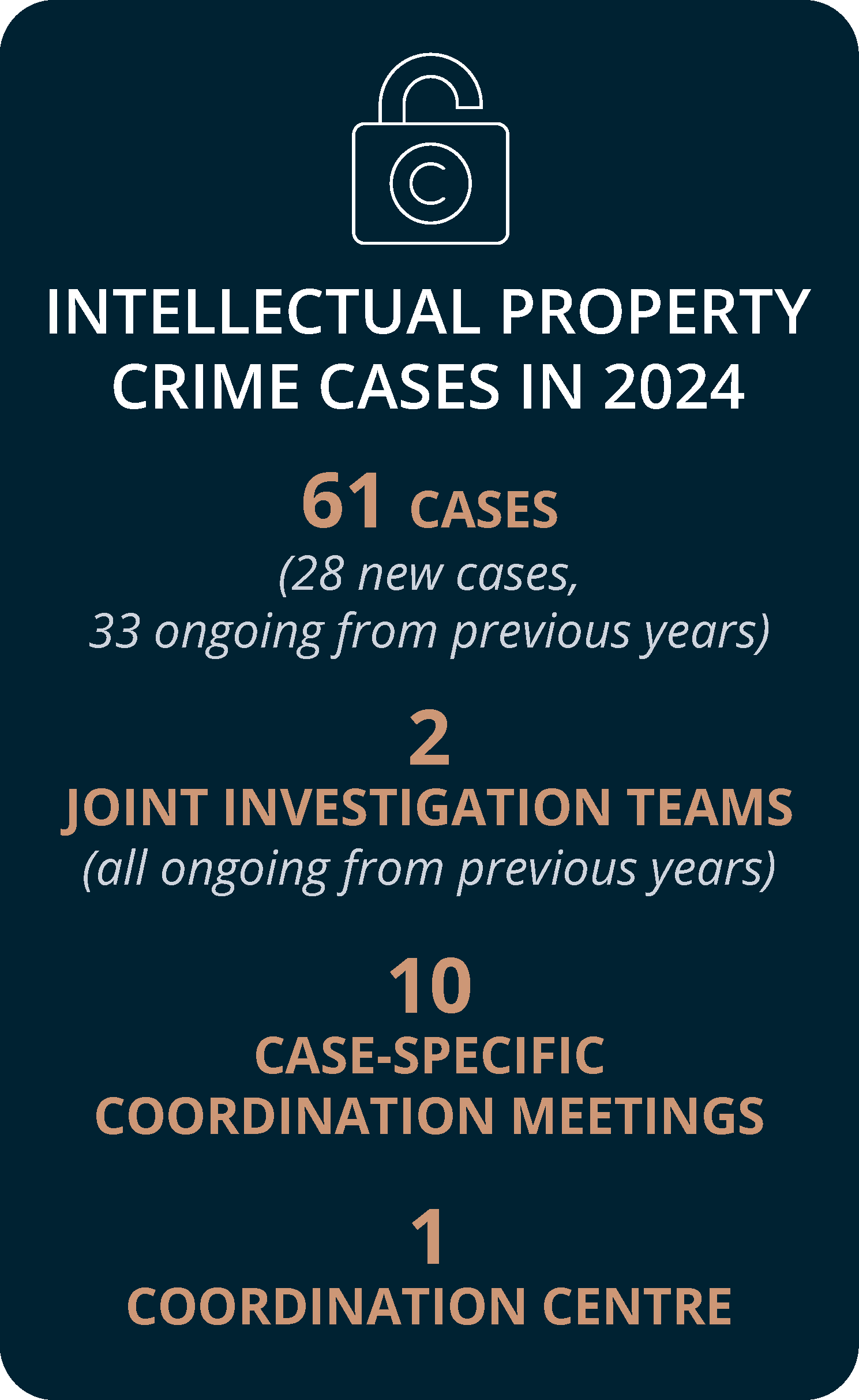Intellectual property (IP) crime is commonplace – from the fake goods sold online or in physical stores to the music, films, series and football matches made illegally available over the internet. Though often regarded as harmless, this form of criminality has serious and pervasive negative effects on the economy, public health and consumer safety.
While IP crime poses significant concerns to law enforcement and judicial authorities, due to its links to organised crime and other forms of serious criminality, criminals take advantage of the low-risk and high-profit nature of this crime area. The emergence and rapid spread of new technologies make IP crime increasingly difficult to investigate, as perpetrators use them to avoid detection.
Eurojust’s operational support to intellectual property crime cases

The number of IP crime cases handled by Eurojust in 2024 continued to grow steadily and increased by more than 10% compared to the previous year. Approximately half of the IP crime cases supported by the Agency were newly opened in 2024. Moreover, the number of IP crime-related coordination meetings organised by Eurojust more than doubled compared to 2023.
Italy, followed by France, was the country that initiated the highest number of counterfeiting and product piracy cases at the Agency in 2024. Germany and Poland were the EU countries most frequently requested to participate in cross-border IP crime cases, while the United Kingdom was the most frequently requested third country to participate in such cases.
The Agency’s IP crime casework in 2024 showed that counterfeiting and product piracy cases are becoming increasingly multilateral and complex in nature, owing to the use of emerging technologies by criminals. As a result, national authorities are increasingly turning to Eurojust for support in such cases, and the Agency’s role is likely to grow further still in the coming years.

